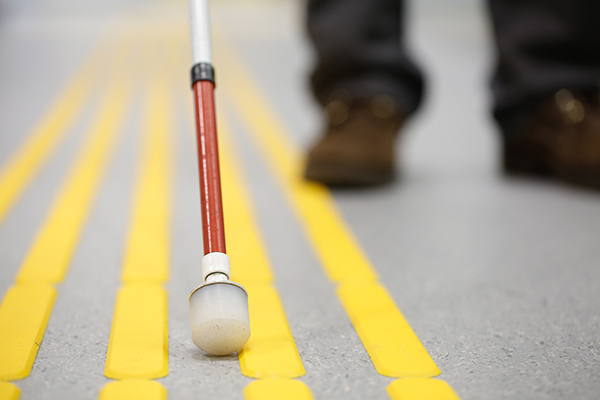Latest News Archive
Please select Category, Year, and then Month to display items
01 March 2023
|
Story Alicia Pienaar
 Prof Mathys Labuschagne is the Head of the Clinical Simulation and Skills Unit within the School of Biomedical Sciences in the Faculty of Health Sciences
Prof Mathys Labuschagne is the Head of the Clinical Simulation and Skills Unit within the School of Biomedical Sciences in the Faculty of Health Sciences
The Dean of the Faculty of Health Sciences, Prof Gert van Zyl, invites you to the inaugural lecture of Prof Mathys Labuschagne, Head of the Clinical Simulation and Skills Unit within the School of Biomedical Sciences in the Faculty of Health Sciences.
Subject: Clinical Simulation: Quo Vadis?
Venue: Auditorium, Equitas Building, Bloemfontein Campus
Date: 8 March 2023
Time: 17:30
RSVP on or before Friday 3 March 2023
Light refreshments will be served after the inaugural lecture.
About Prof M Labuschagne
Prof Mathys Labuschagne is the Head of the Clinical Simulation and Skills Unit within the School of Biomedical Sciences in the Faculty of Health Sciences at the University of the Free State. He completed his MB ChB degree and qualified as an ophthalmologist in 2006.
He developed an interest in health professions education and obtained a PhD in Health Professions Education in June 2012. The title of his thesis was: Clinical Simulation to enhance undergraduate medical education and training at the University of the Free State.
Prof Labuschagne was appointed Head of the Clinical Simulation and Skills Unit at the University of the Free State. The facility is utilised for undergraduate and postgraduate clinical simulation training, as well as interprofessional training and research. He has a special interest in simulation as training tool, precision skills training, and mastery of learning and simulation as tool to prepare students for interprofessional education and collaborative practice.
Prof Labuschagne is part of a multi-institutional consortium that developed the MySkills Medic app. It is a clinical procedural skills application aimed at graduating medical students, interns, and community-service doctors. He was appointed as a member of the Ophthalmology Foundation Education Simulation Subcommittee (affiliate of the International Council of Ophthalmology) tasked with developing a white paper to guide simulation training for ophthalmologists. He is involved in postgraduate supervision for master’s and PhD students in HPE.
Tactile paving assists visually impaired
2017-10-28

Tactile paving is being installed at pedestrian crossings to assist
visually-impaired persons at the UFS.
Photo: Supplied
Crossing roads and accessing buildings has always been a challenge for people with visual impairments. They had to rely on peripheral sounds, such as car brakes and cues. However, after the installation of tactile paving – paving with special textures assisting the visually impaired to feel the difference between walking around on campus and crossing the road, this will no longer be a problem at the University of the Free State (UFS).
This is one of several developments that University Estates’ Department of Facilities Planning has in the pipeline for 2017 in order to ensure that the university attains its key component in providing a high-quality student experience.
Maureen Khati, Assistant Director of Project Management: Facilities Planning, says, “We saw the need to install these paving blocks in strategic spaces, as identified by the Center for Universal Access and Disability Support (CUADS).” She says these blocks will make it easier for people with visual impairments.
Special features designed to aid visually-impaired persons
These installations have special features that will assist those students and employees with limited vision or blindness to navigate through pedestrian crossings and the different campus buildings. The university chose a unique design of tactile paving that focuses on warning and directing those with visual impairments.
UFS eager to improve accessibility and mobility
The university, and all the stakeholders involved in this initiative, are delighted to be embarking on this project and are looking forward to its successful execution. To improve accessibility and mobility, more accessible entrances and exits will be built, effective signage will be installed inside and outside buildings, but the most important aspect is that dedicated seating space will be made available in lecture rooms for special-needs students.
Khati says, “More focus has been put on installing ramps in all buildings to make them more accessible for people with disabilities, as well as other needs required to enhance accessibility at the UFS.”
For the UFS, this initiative is one of many to come, as extensive research is being done and priorities are implemented accordingly.